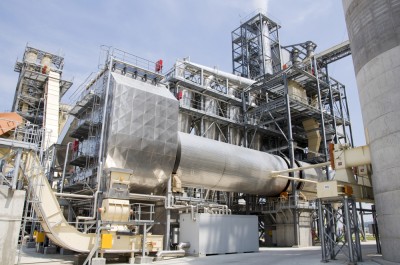The Energy Research Partnership has published the ‘Bio-energy Technologies Review’ in two separate but related reports. The first report, targeted at senior level executives and policy makers, was released in June 2011. The second report was more technical and served as a compendium of evidence to validate the recommendations made in the first report was released in October 2011.
The review identifies the opportunities from, and addresses the challenges to, further development of bio-energy technologies by 2050. It makes recommendations about UK bio-energy in 3 areas: The management of the UK support for bio-energy, focus of UK research on bio-energy technologies and support for development and deployment of bio-energy.
Recent assessments of the UK energy system to 2050 have shown that in order to attain 80% GHG emissions reductions, bioenergy will need to play a key role. There is substantial potential for the UK to develop a reliable, sustainable and economic domestic biomass to bioenergy value chain. However, there are uncertainties as to the role that bioenergy will play in the energy system and gaps in our understanding as to how to produce biomass and deploy bioenergy technologies at scale; these issues need to be addressed.
Conclusions and recommendations
Management of the UK support for bio-energy
- Substantial benefits would flow from a co-ordinated ongoing, integrated bio-energy strategy involving all government departments and executive agencies concerned with the sector.
- This should be facilitated by the Department of Energy and Climate Change which should be recognised as the department responsible for leading the development and implementation of the strategy.
- There should be clear identification of roles for respective government departments in the UK bio-energy value chain and increased specialist bio-energy capacity within each department.
Focus of UK research on bio-energy technologies
- There should be continued support for research in a number of existing areas that will underpin the successful development and deployment of bio-energy, such as plant science, applied agronomy and conversion technologies.
- Exploratory work in a number of new areas, should be subject to ongoing review, including:
- use of algae within a wider research remit of which a component should be for energy;
- bio-energy with CO2 capture and storage;
- the potential for liquid “drop-in” bio-fuels that could be substituted for conventional fuels; and
- investigation of the opportunities for development of large scale bio-refineries.
Support for development and deployment of bio-energy
- Better global information on land use, and understanding of how to optimise the use of available land to produce food, fibre and energy in a sustainable and cost-effective manner.
- More work should be done with other countries through collaborative research programmes, which would allow the UK to benefit from advances elsewhere.
- The development of extension services for the education of farmers on sustainable farming practices.
- Re-consider EU GMO policy with the need for public engagement.
Support along whole of the UK bio-energy supply chain to minimise financial risk (from farmer to end-user).
Follow-up activities
The ERP sought to follow up on the key recommendation that ‘There is an urgent need for of strategic oversight, policy alignment and coherence of the components involved in the UK bioenergy sector. Without this the UK risks missing the opportunity to optimise the contribution of bioenergy in the energy system for pathways to 2050.’
To this end, the ERP sponsor undertook meetings with Bernie Bulkin (ORED) and David MacKay (CSA to DECC) to further this and other recommendations in the ERP review, and Steering Group members also met with the Climate Change Committee (CCC). A discussion paper was also produced in response to the CCC Bio-energy Review released in December 2011.
Key outcome from engagement activity was the development of the cross-departmental working group on bioenergy.
Working Group
Project Sponsor – Dr Graeme Sweeney, Executive Vice President CO2, Shell International
Dr Rebecca Heaton – Shell International
Dr David Penfold – The Carbon Trust
Marcus Stewart – National Grid
Dr Robert Sorrell – BP
Charles Carey – Scottish and Southern Energy
Dr Susan Weatherstone – E.ON
Duncan Eggar – BBSRC
Thanks to the contributions of Professor Robert Lee (Shell International) and Steven Vallender (National Grid)



